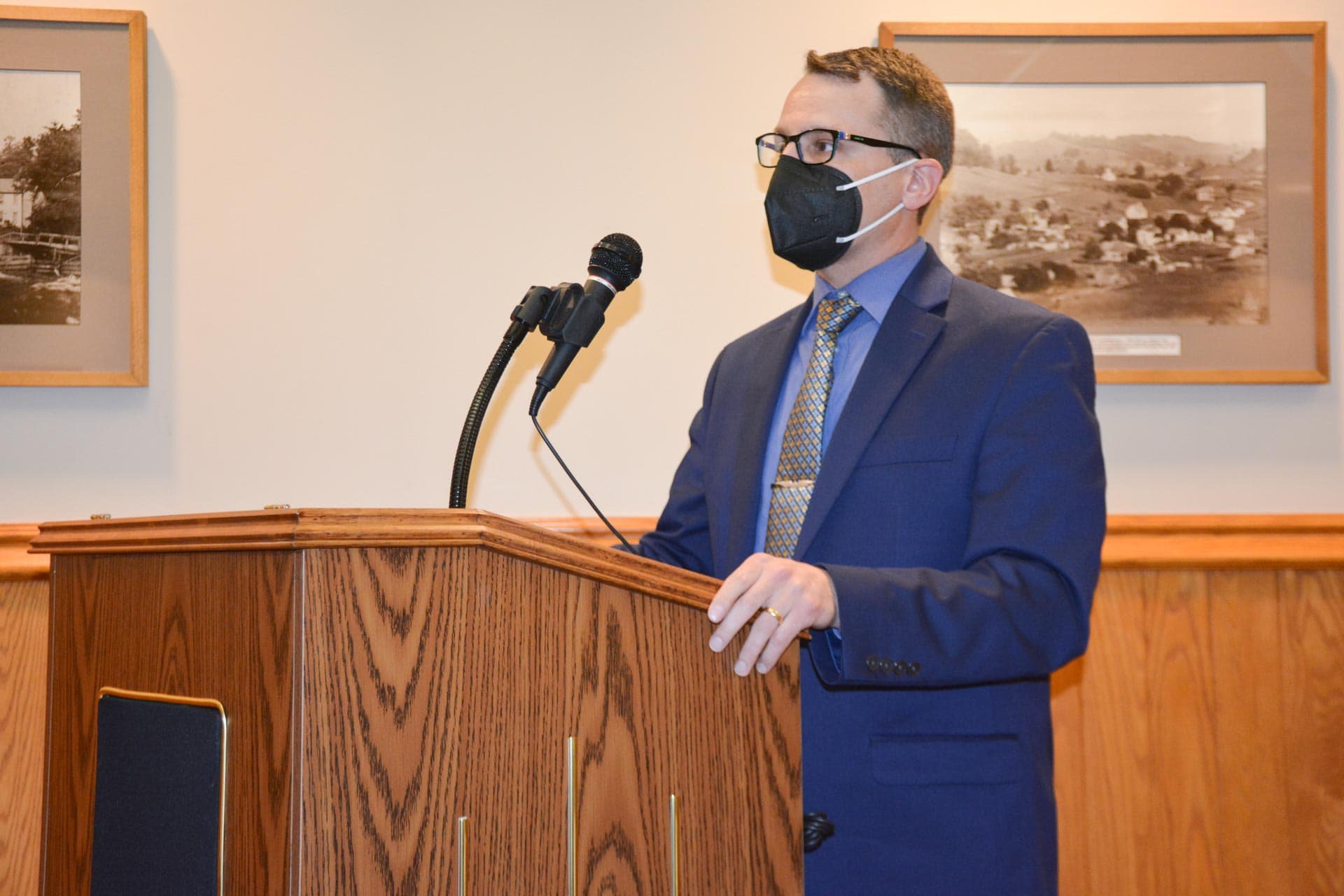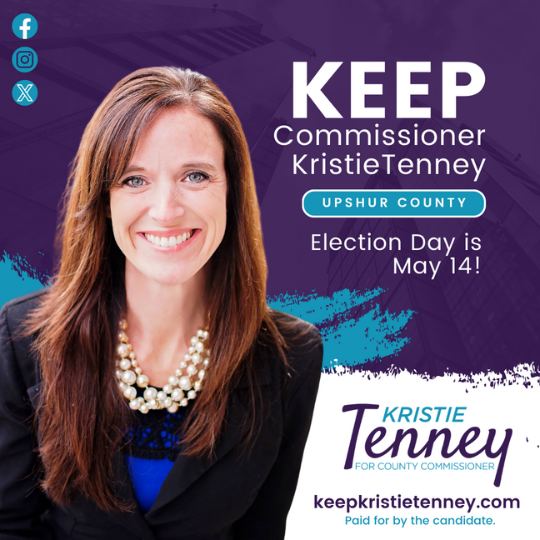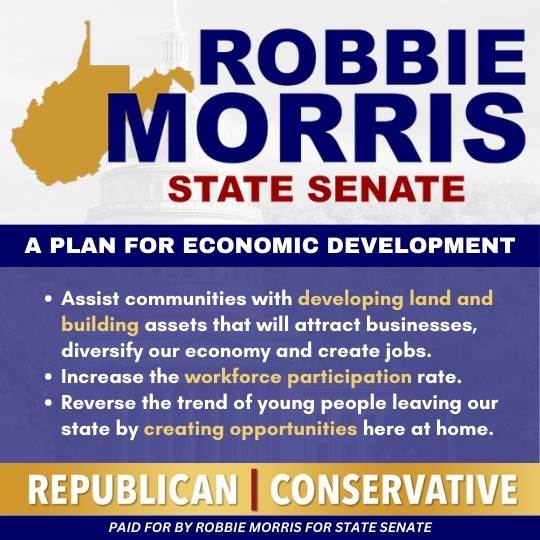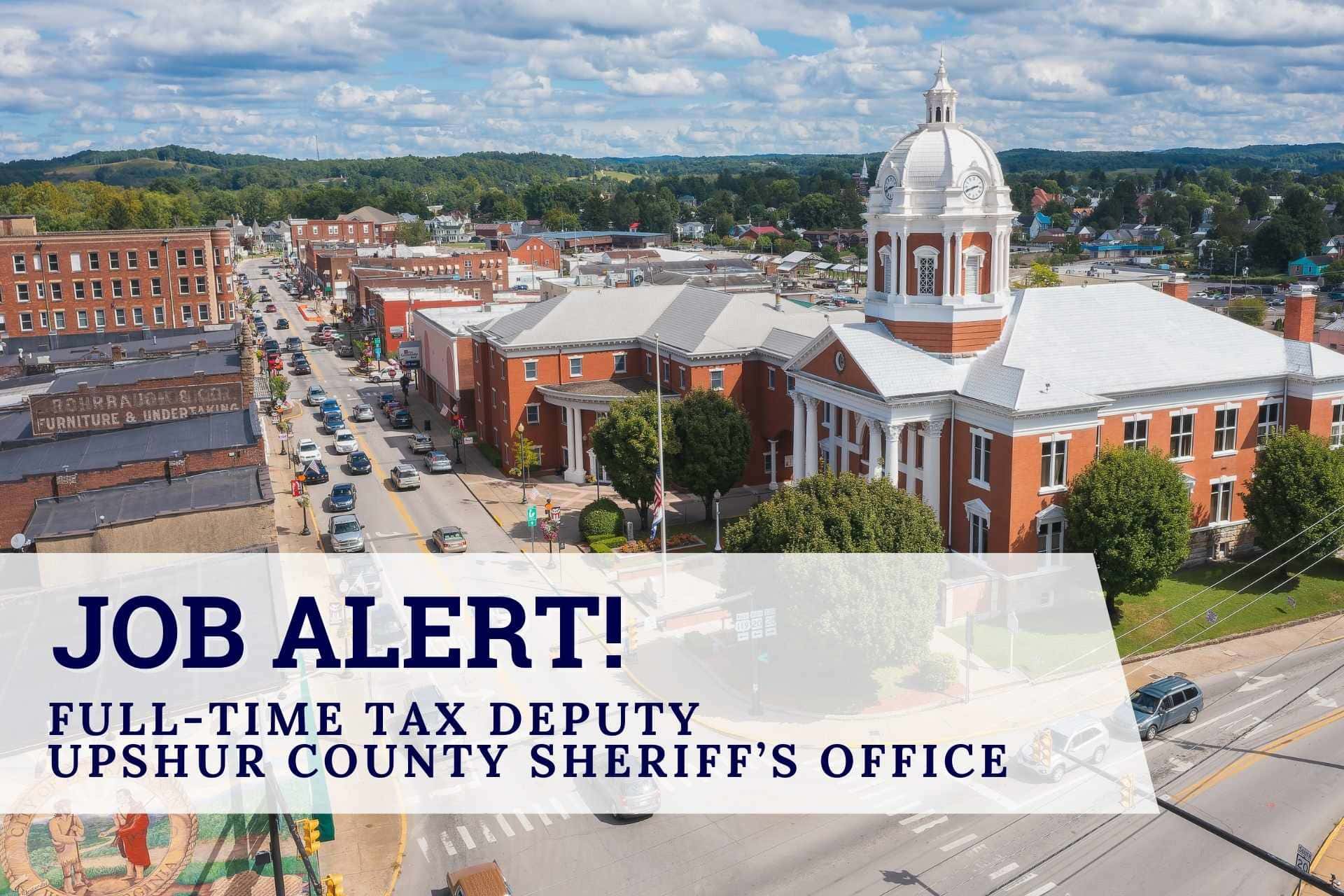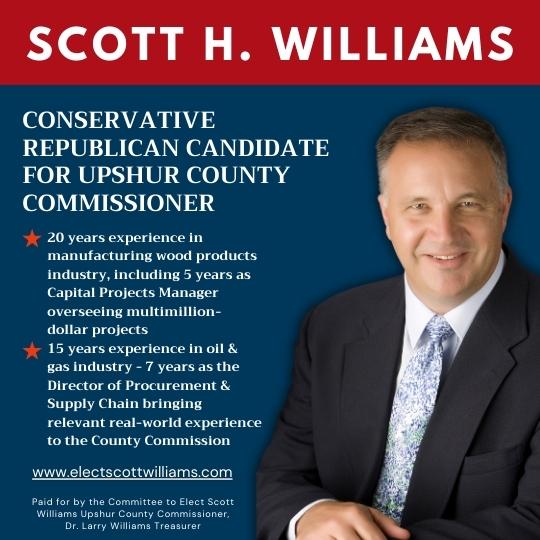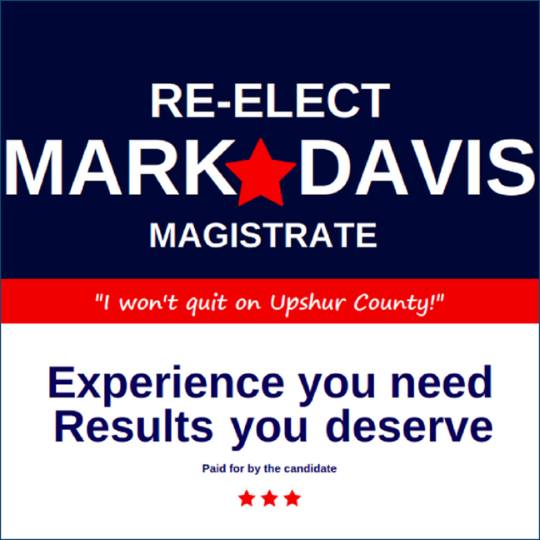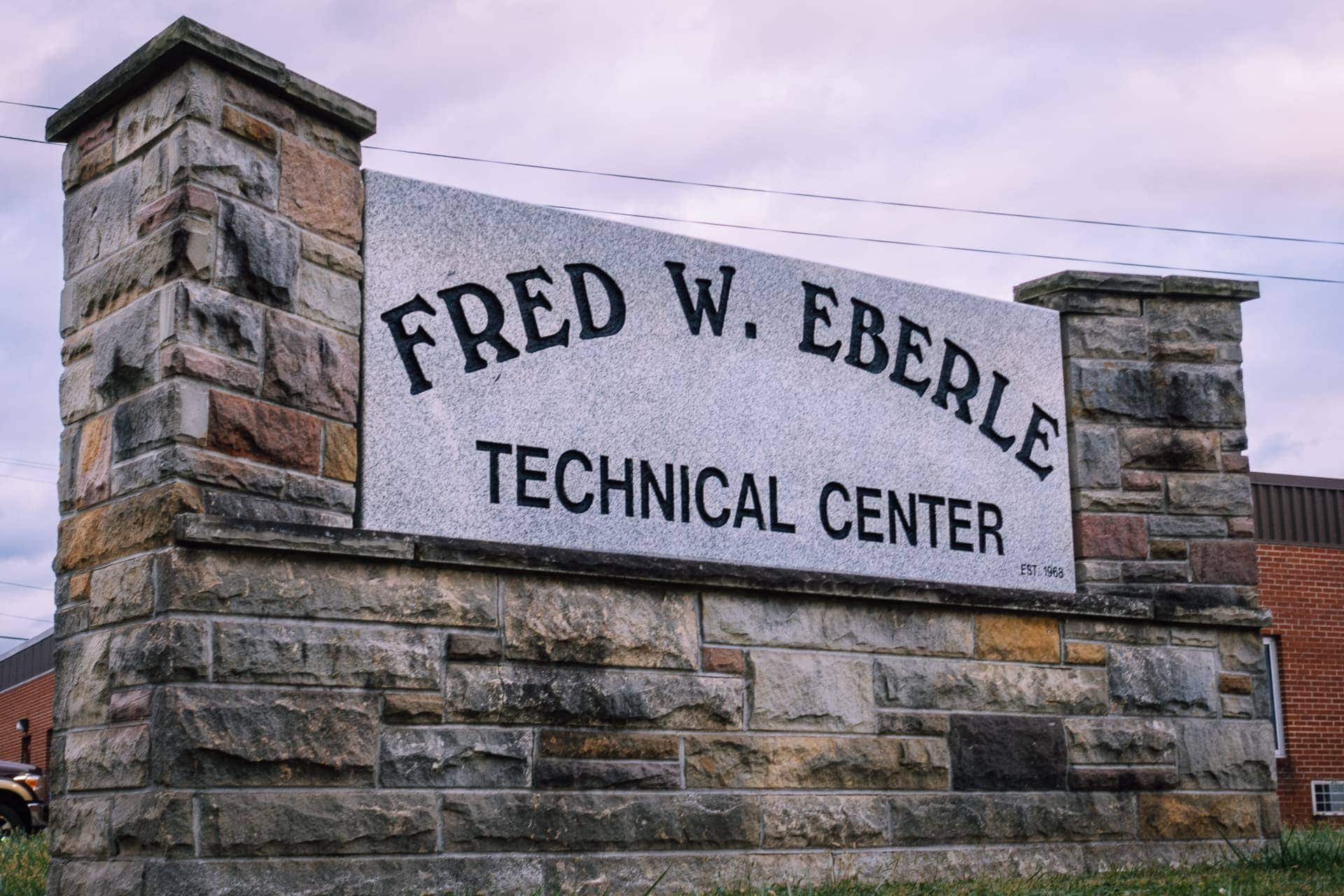BUCKHANNON – The city and county have both signed on to participate in a study of the delivery of emergency services across Upshur County.
Over the past week, Dr. Jeffery Harvey, owner of JH Consulting LLC, an emergency preparedness and safety consulting firm, briefed both Buckhannon City Council and the Upshur County Commission on the proposed study, which would involve about two years and a variety of entities in the city and county.
Buckhannon City Council at its meeting March 18 unanimously approved committing $10,000 to the two-phase study, and the commission gave its stamp of approval at its March 25 meeting a week later.
Harvey outlined the two-phase similarly at both governmental meetings. Harvey said said he’d originally envisioned a three-phase study involving a foundational phase, a planning phase and a training/emergency exercise phase based on the findings from the first two phases.
At council’s meeting March 18, he suggested the configuration of the study be switched up.
“At this point, I would advocate more of looking at first two phases and kind of leaving the third phase shelved for right now in lieu of what we might learn in the first two phases,” Harvey said.
The new proposal, he told city and county governmental officials, would involve a Phase 1 that identified all elements of the existing emergency services network and system, including capabilities and needs “by engaging local government officials, emergency services providers and ancillary partners to work on a foundation of trust.”
“This is all about unearthing what we do well, what gaps we might have and getting all of our folks engaged working in same directions,” Harvey said. Phase Two would include building on that assessment and compiling a series of recommendations to enhance emergency services delivery across the county; it would also involve outlining mutual aid agreement updates and updating an inventory of local and regional resources.
“I think what would be a better use of that second phase would be to think of it as more of a strategic action plan and a list of implementation-style projects a la what you might see for a comprehensive plan for a community, that way we’re able to give our assets in the community an opportunity to identify projects that may be worthy for them to be able to contribute toward [and adopt] some of the recommendations we might have in that action plan,” Harvey said.
Harvey said he planned on taking a “road show” to each emergency service provider in the county – i.e. going door-to-door and explaining what the study would and would not entail.
“I really feel very strongly that it’s critically important that we get as many of our players in the community involved in this project as possible, one, because we want it to be a reasonably accurate study for our area, and in order to do that, we need to have as many partners involved,” he said. “I want to go and just talk personally with each of these agencies, let them know what it is, ask them what they would like to learn, how they think they could benefit from it, and what role they could play.
“I think we could garner participation that way, which will help us start out on a firm foundation,” Harvey added. He said although there’s been some controversy surrounding emergency services delivery of late, now is an ideal time to conduct a study because community entities have shown their ability to pull together when there is a common enemy, such as the coronavirus.
The study would not only encompass traditional emergency service providers like fire, police and EMS, but also other integral agencies, including the Upshur-Buckhannon Health Department, St. Joseph’s Hospital, community medical providers, West Virginia Wesleyan College, social service agencies, public housing and more, Harvey said.
“It’s not just a survey of the traditional emergency service providers – police, fire and EMS,” Harvey remarked. “I think if COVID has taught us one thing, it’s taught us that the emergency response infrastructure is a lot more than just those three agencies. It’s a look at service delivery across the entire community. It’s what DHS (the Department of Homeland Security) and FEMA (Federal Emergency Management Agency) refer to as ‘whole community.’
Within the ‘whole community’ approach, 32 core capabilities have been identified across five mission areas: prevention, protection, mitigation, response and recovery, Harvey said.
Harvey estimated each of the two phases would take eight to 12 months, with the total study spanning about two years. He additionally stressed that he and the other four individuals who work for JH Consulting did not “have any intentions with this project.”
“We’re facilitators and data analysts,” he told council.
Councilman CJ Rylands said he was excited for Harvey and his team to begin.
“We’ve been having some conversations around emergency services, and our decisions are only as good as the information we base them on, and we need more accurate, objective, third-party, best practices observations of what’s happening and what we can do about it,” Rylands said. “I think the sooner [we get this started], the better.”
City recorder Randy Sanders made a motion to commit $5,000 to pay for Phase 1 and $5,000 to pay for Phase 2, which was seconded by councilwoman Mary Albaugh and passed unanimously. Upshur County Administrator Carrie Wallace attended council’s March 18 and let council know that as a part of the commission’s budget process, they had also allocated a total of $10,000 in their draft budget. She asked Harvey to bill the county and city individually $5,000 per phase.
At the commission’s March 25 meeting Thursday, commissioner Sam Nolte applauded the “road show” approach.
“I like that you’re going to the different organizations,” he said. “They would probably be more inclined to be more open and forthcoming with information if they feel like they are involved and have a say in this study. Everyone that I’ve spoken to over the years said that this would be tough, and it’s not common to have this sort of countywide plan but if you could pull it off, it would be huge for Upshur County.”
Harvey addressed what he called a misconception about the upcoming study.
“There’s a bit of a misconception that the study is intended to take away or result in fundamental changes to entities that are providing services,” he told commissioners. “The study itself is only going to look at ways that we can improve operations [in various areas].”
Dirk Burnside, volunteer DHSEM Communications office and Enhanced Emergency Telephone Advisory Board member, asked Harvey if the study would encompass day-to-day delivery of emergency services or measures taken to address disasters, which are typically defined as events that overwhelm a local emergency delivery system. Harvey said both would be addressed in the study’s scope.
Retired director of the Upshur County Office of Emergency Management Jim Farry commended the county-city cooperation.
“I’m impressed that you’re taking this approach, especially the coordination with the city,” Farry told the commission. “I think it’s long overdue and you couldn’t find a better person to head this up than Jeff.”
Nolte reiterated the importance of giving the study a fair chance.
“There’s so many turf issues with emergency services, but I think we’re unique in Upshur County with having one municipality in the county and being in a relatively small county that I feel like it’s worth a shot,” he said. “I think we’ll find out a lot about what we are doing well, what we can do better and we’re still in the pandemic, but we’ve definitely learned a lot in the last year, and we continue to learn, really.”

“There’s a lot that can come of this study that I think, if we don’t try, we’ll never know,” Nolte added. “That’s the most important part here. This is the perfect time, I think, to approach the situation.”
Harvey agreed, saying he hoped the study could be used to “broker a collaborative approach, a trustful approach amongst our agencies in our jurisdiction.”
